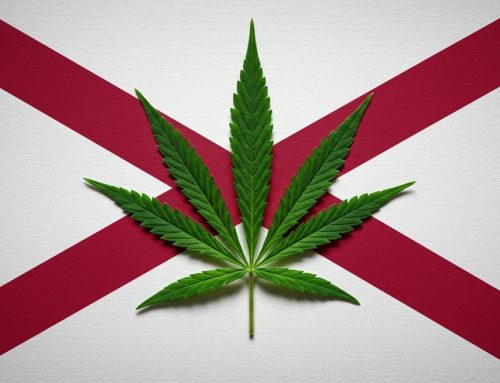One of Boston’s leading sportscasters says medical marijuana saved him from a serious addiction that could have cost him his life.

Lobel, 71, said he started taking opioids years ago to treat chronic pain resulting from two knee replacements, two rotator cuff operations, four back surgeries, and two leg fractures in separate accidents. He didn’t like the drugs, even when they helped the pain.
“My issue was strictly pain,” Lobel told the newspaper. “I didn’t want to take any more OxyContin or oxycodone or Percocet, for a variety of reasons. The biggest thing I was worried about was addiction. But they also made me tired and it was hard to function and I couldn’t go on TV all drugged up.”
A doctor recommended cannabis as an alternative
At a loss, Lobel said, he went to a medical marijuana event in the city a few months ago. There, a doctor working from a new medical cannabis dispensary in Natick, a Boston suburb, recommended cannabis as a solution. Dr. Uma Dhanabalan works at the Uplifting Health and Wellness clinic and recommends patients for MMJ.
Dhabalan is one of a growing group of doctors pushing for medical marijuana as a treatment for opiate addiction. Abuse of these powerful painkillers, derived from the opium plant or synthesized to mimic it, can easily be deadly. Prescription overdose is now a leading cause of unexpected death in the United States.
“She told me medical marijuana could be used for pain reduction and I said, ‘Hey, sign me up,'” Lobel said. “I wanted to at least try it. I wasn’t interested in getting high, that’s not the goal, believe me. It was really about helping with the pain, and it did.”
Lobel got an MMJ card
 Lobel said his daughter, who lives in Oregon, got him an appointment with an MMJ doctor there earlier this year. He got a medical marijuana card – Oregon is the only state that allows visitors to register for MMJ – and started using. The process took three days, he said.
Lobel said his daughter, who lives in Oregon, got him an appointment with an MMJ doctor there earlier this year. He got a medical marijuana card – Oregon is the only state that allows visitors to register for MMJ – and started using. The process took three days, he said.
Lobel isn’t yet legal to smoke up in Massachusetts, whose voters adopted medical cannabis in 2012. He’s waiting for his patient ID, he said.
“I don’t want to have to fly across the country and deal with drug-sniffing dogs at the airport,” he said. “I want to do everything legally here. I just have to wait and get my card.”
Cannabis helped “take the edge off”
The medical cannabis helped “take the edge off” the chronic pain, said Lobel, who worked many years for WBZ-TV in Boston. He said he uses an oil extract instead of smoking. He also uses edibles, but said he doesn’t need marijuana every day.
Increasing scientific evidence suggests marijuana can be highly effective in weaning addicts off more dangerous drugs, such as heroin and alcohol. Many addicts credit years of abstinence to the availability of cannabis. And as in Lobel’s case, the drug can prevent an addiction from developing in the first place.
“It’s more than a reasonable alternative once you get past the stigma like you’re under a railroad bridge smoking pot,” Lobel said. “It’s not perfect, and I still need to learn more about what works best for me. I just feel like it’s a positive once you get past the word ‘marijuana.’ I am not saying it’s the be-all and end-all. But in terms of pain relief . . . it really helps.”






